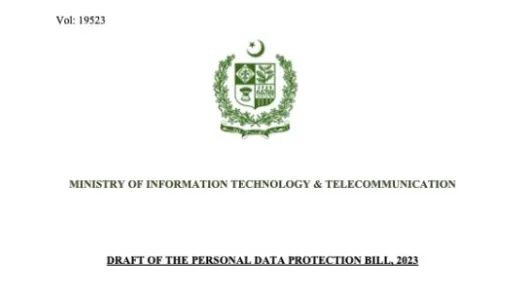
The UN Report on Disinformation: a role for privacy
We reflect on the UN’s first ever report on disinformation, highlighting the Special Rapporteur’s approach, key findings, and areas of further innovation.
The protection and enforcement of privacy is considered a key factor in the fight against disinformation.
- Systematic data collection and targeted advertising not only interfere with privacy - they also threaten the right to freedom of opinion
- Privacy and freedom of expression safeguards are both necessary and complementary
- The online advertising industry is now under heightened UN scrutiny

The report on disinformation by the UN Special Rapporteur on the promotion and protection of the right to freedom of opinion and expression follows a growing trend by international bodies (including the Organization of American States and the European Commission) to assess and regulate the global phenomenon that is disinformation.
The report strongly links the spread of disinformation with the gratuitous data collection and profiling techniques utilised by the online advertising industry, which increasingly impacts our right to privacy. The Special Rapporteur has recognised that the spread of disinformation is not just about what you see, but why you see it.
The report goes a long way towards highlighting the negative consequences of this practice, the safeguards to adopt, and the dangers of applying an overly restrictive approach.
We highlight a few take-aways below.
It’s not just governments - industry players are also under scrutiny
The Special Rapporteur is clear that businesses should respect human rights. After analysing Facebook and Twitter’s efforts to curb disinformation, the Rapporteur’s conclusion is clear: platforms simply have not done enough, and their approach to the issue has not been uniform across jurisdictions.
But the report’s conclusions on private sector behaviour go beyond the regulation of disinformation. The Special Rapporteur notes the opacity and inadequacy of company responses, and concludes that large platforms ignore human rights concerns arising from their business models, lack of transparency, and the inadequate due process rights of individuals.
The report identifies a series of contributory factors to disinformation, ranging from ad targeting options to algorithms. In other words, the scope of the report extends to the vast array of mechanisms at play in the deliver of information: from ads to content optimisation.
Data protection is key in the fight against disinformation
PI has long called for transparency and accountability in the hidden data ecosystem. The Special Rapporteur echoes this call, stating that data protection is key to re-orient the ad-driven business model of the digital economy. We agree.
The report calls for strong data protection laws to curtail the pervasive tracking and targeting of individuals and their online activities. In so doing, the report highlights the emerging complementarity of the right to privacy and the right to freedom of expression in combating disinformation.
Systematic data collection and targeted advertising may amount to an interference with the right to freedom of opinion
It is well-established that systematic data collection interfere with the right to privacy. But as the Special Rapporteur’s report makes clear, there is an additional dimension in which systematic data collection may interfere with human rights. The right to freedom of opinion - a key element of the right to freedom of expression - is also threatened by data-intensive practices, such as micro-targeting.
According to the report, the lack of transparency behind targeted advertising, combined with the high levels of personalisation relying on vast amounts of personal data, constitute an intrusion into individuals’ right to privacy and their right to form their ideas free from manipulation.
Of particular relevance is the Special Rapporteur’s conclusion that sensitive personal data, such as data on ethnicity and/or political affiliation could be dangerous in countries with a history of political violence.
Unequal ads transparency standards are complicit
The report emphasises the need for transparency in social media platforms, and notes the inconsistent availability and application of ads transparency tools, which remains optional in multiple countries.
PI has highlighted the inadequacy of ads transparency standards since 2019. In early 2021, PI penned an open letter co-signed by 60+ organisations to call on Facebook and Google to apply the highest possible transparency standards across the board, and not just to the privileged few. As the report shows, there is still substantive progress to be made.
Building on PI’s submission, the Special Rapporteur notes that countries other than the US have “different levels of investment” by social media giants both in terms of transparency standards and content moderation. This inequality is made clear by our research and the recent example of the US elections in 2020: while several and - to our knowledge - unique steps were taken by platforms to protect democracy in the US, several other countries remained largely ignored. A key example of this exclusive treatment was Facebook’s introduction of an opt-out option for political ads seen on the platform months ahead of the US election.
The report’s conclusion that the lack of transparency and access to data continue to be the major failings of companies in relation to disinformation, is therefore timely and unsurprising.
Civil society must be alert to privacy challenges arising from the regulation of disinformation
The Special Rapporteur’s report highlighted that measures seeking to curb disinformation could negatively affect both the right to freedom of expression, and the right to privacy.
For example, a draft bill in Brazil, if implemented in its current form, would require social networking and messaging platforms to identify all users by, at a minimum, providing a valid identity document or, as some versions of the bill have requested, by providing a cell phone number registered in Brazil or a copy of the passport of the user. In line with this provision, social network and private messaging service providers are also required to suspend the accounts of users whose numbers are deactivated by telephone operators.
As the UN and OAS Special Rapporteurs for Freedom of Expression have previously noted, to begin with, such intrusive measures undermine the right to anonymity in the legitimate exercise of freedom of thought and expression. But they would also interfere with the right to privacy to the extent that individuals may be made to disclose private information as a pre-condition to accessing social media. In particular, legitimate questions arise as to whether individuals can freely consent to personal data such as ID or phone numbers to be processed in circumstances where access to social media networks is crucial for civic participation.
The UN Special Rapporteur’s report on disinformation is a welcome step towards the scrutiny of this growing practice, its consequences, and the ecosystem enabling it.
You can find Privacy International's submission to the Rapporteur below.



